merel | belgian | 19 | speaking: dutch, english, french | learning: french, german, norwegian
Don't wanna be here? Send us removal request.
Text
Websites for Japanese Learners
! click on website name to be redirected !
all websites can be used for free and without subscribtion (thats why japanese101 isnt included)
-> apps for japanese learners (soon)

1. JLPT Sensei
study guides (N5-N1)
includes grammar, kanji, vocabular, adjective, verb and other lists for orientation when studying
free JLPT practice tests
2. Japanese Verb Conjugator
automatic verb conjugator
verb database
kanji database & kanji tester
over 180,000 example sentences with sound
3. Tanoshii Japanese
japanese-english dictionary (with stroke order!)
pratice games & interactive lessons (Kanji Mahjong etc.)
learning resources (japanese novel, textbook, magazine, movie recommendations)
4. Jisho
fast and smart japanese-english dictionary
draw and radical function apart from keyboard search
searching by topic and categories by adding #[topic/category]
JLPT levels, sentences, particles, counters, names included
5. Map Quiz
world map quiz in japanese
divided into continents and north, east, south and west
6. Japanesetests4you
free JLPT N5-N1 reading and listening tests
free JLPT N5-N1 vocabulary, kanji and grammar lists + tests
7. Shiritori Online
Shiritori (しりとり) is a popular japanese word game and is ideal to exercise vocabulary for japanese learners. 2 or more players take turns saying a word that starts with the last kana of the previous word. The game ends when someone answers with a word ending with -n (ん) because there are no words starting with ん.
it is up to the players whether all forms of a hiragana (kana and its diacritics; は,ば and ぱ etc.) are allowed or not (e.g やぎ -> きよう).
example: りんご (apple) -> ごりら (ゴリラ) (gorilla) -> らーめん (ラーメン) (ramen). The last person who said ramen loses because the word ends with -n (ん). Instead the person could have saidらま (ラマ) (llama) (e.g).
2K notes
·
View notes
Text
Unique and out of the box language learning resources you probably haven’t heard of!
• Lyrics Training - Lyric fill in game
• Radio Garden - Listen to the radio anywhere in the world
• Language Reactor - Browser extension to learn with Netflix, YouTube, etc
• BaBaDum - Fun vocab games
• Linguno - Listening, vocab, and conjugation exercises, plus 10 daily crosswords in each language
• Bilinguis - Read a small selection of classic, older books in a bilingual side-by-side style. Some have audio reading as well!
• Lyrik Line - Read and listen to poetry in your target language!! Huge selection
• Top 40 Charts - Top 40 music hits in countries around the world.
• Kiosko - Daily newspaper covers all over the world. Clicking on one takes you to the news website to read more
• Lexicity - For all of you ancient language obsessed people!! Amazing and thorough resource for many ancient languages
-> Click on the link below to get links to all those sites + more information about them!
6K notes
·
View notes
Photo
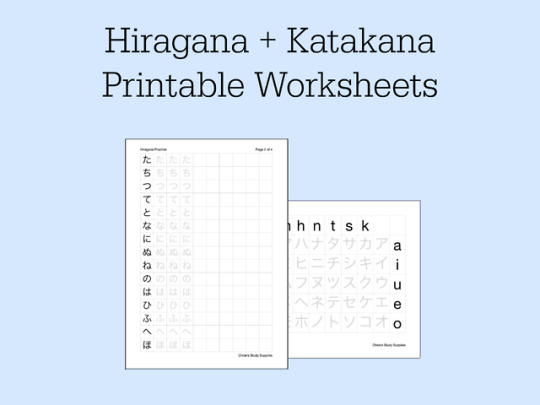
Hello friends it’s me again. I’ve got another set of printables for you all! This time for hiragana and katakana! There are 3 practice charts (hiragana, katakana and blank) and lots of writing practice! Of course you can print them multiple times once they have been downloaded ^^ as always, any support is greatly appreciated! I hope this can help out those of you just starting out with Japanese! 💕
1K notes
·
View notes
Text
i don’t know why but i’m really amused by the winner of some ‘new kanji’ contest:

compare with the real kanji

座 (seat/gathering), but the two 人 (person) radicals have been moved from next to each other within the 土 (earth) radical to diagonally from each other, making this “social distance(d seating/gathering)”
107K notes
·
View notes
Text
Compliments in Norwegian that isn't about physical appearance
1. Du er snill - You are kind
2. Du er morsom - You are funny
3. Du er sterk - You are strong
4. Du er smart - You are smart
5. Du inspirerer meg - You inspire me
6. Du er så forståelsefull - You are so understanding
7. Du betyr mye for meg - You matter a lot to me
8. Du inspirerer meg til å bli et bedre menneske - You inspire me to become a better person
9. Du har et varmt og godt hjerte -You have a warm and good heart
10. Du har god smak - You have good taste
11. Du er modig - You are brave
12. Du er imponerende - You are impressive
13. Du lyser opp rommet - You light up the room
14. Du har en fantastisk latter - You have an amazing laughter
15. Du gjør en forskjell - You are making a difference
16. Stemmen din er betryggende - Your voice is calming
17. Smilet ditt er smittende - Your smile is contagious
18. Lidenskapen din er smittende - Your passion is contagious
19. Jeg skulle ønske flere var som deg - I wish more people were like you
20. Jeg liker stemmen din - I like your voice
21. Jeg er stolt av deg - I am proud of you
22. Jeg blir så glad når jeg er med deg - I get so happy when Im with you
23. Jeg blir glad når jeg tenker på deg - I become happy when I think of you
24. Jeg koser meg alltid med deg - I always have a good time when Im with you
4K notes
·
View notes
Text

this is so cool and ik i have a lot of linguistics mutuals
12K notes
·
View notes
Text
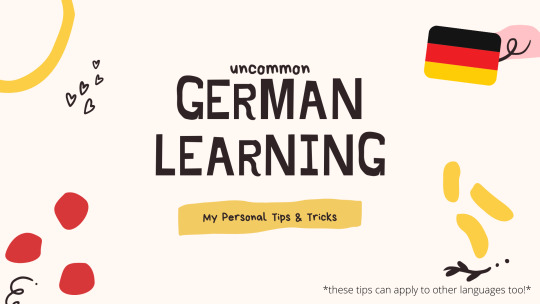
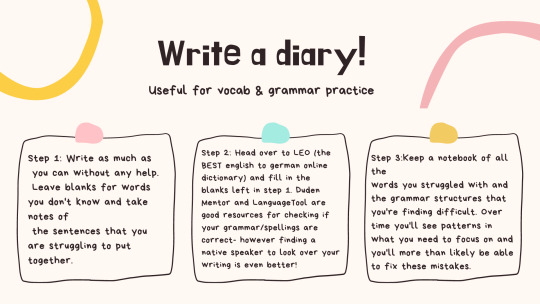
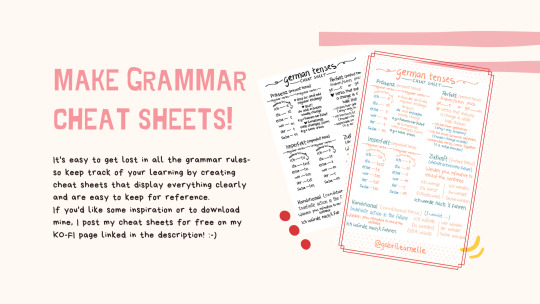


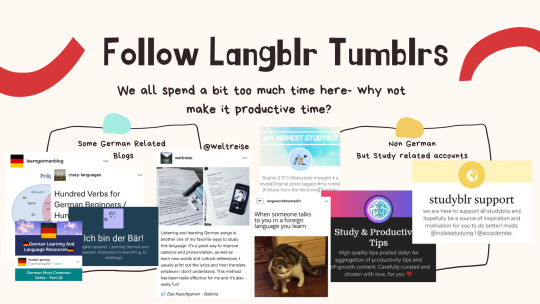

Here are some of my unusual ways of studying German! I hope this helps some of you out✨
Mentioned Blogs : @learngermanblog / @mutant-german / @ich-bin-der-baer / @myhoneststudyblr / @crazy-languages / @weltreise / @langsworldmemes01 / @productive-tips / @studyblr-support
3K notes
·
View notes
Text
et hjem (a home)
vocabulary list for temauke 2 (@hjertespraak )
et rom a room
ei/en stue a living room
et kjøkken a kitchen
ei/en spisestue a dining room
et spiskammer a pantry
en gang a hallway
en entre a hallway (entrance)
et bad a bathroom
et soverom a bedroom
et loft an attic
en kjeller a basement
et møbel (pl. møbler) a piece of furniture
en sofa a sofa
en TV a TV
en lenestol an armchair
ei/en hylle a shelf
et bord a table
en stol a chair
en ovn an oven
en komfyr a stove
en mikrobølgeovn a microwave
et kjøleskap a fridge
en fryser a freezer
en oppvaskkum a kitchen sink
et skap a cabinet
et badekar a bathtub
en dusj a shower
et toalett a toilet
en vask a sink
ei/en seng a bed
et klesskap a wardrobe
en/ei lampe a lamp
et skrivebord a desk
en boks a box
47 notes
·
View notes
Text
Possessive Pronouns
I recently got an anon asking about a number of different things, including certain possessive pronouns, so I’ve decided to break it down into two posts. This one will be about possessive pronouns (my/your/his/her/our/their).
In Norwegian, possessive pronouns have to agree with the noun they’re describing. That means the majority of pronouns have a distinct masculine (m), feminine (f), neuter (n) and plural (pl) form, although some use the same form regardless of gender.
The possessive pronouns in Norwegian are:
My: min (m), mi (f), mitt (n) and mine (pl)
Your (singular): din (m), di (f), ditt (n) and dine (pl)
His: hans* (m/f/n/pl)
Her: hennes* (m/f/n/pl)
Our: vår (m/f), vårt (n) and våre (pl)
Your (plural): deres (m/f/n/pl)
Their: deres* (m/f/n/pl)
*There’s also sin (m), si (f), sitt (n) and sine (pl) for his/her/their which I’ll explain in a bit. For now, we’ll focus on the other pronouns.
So, if you have a masculine noun, you use the masculine pronoun (min/din/sin/vår), neuter pronoun for neuter nouns (mitt/ditt/sitt/vårt) and plural pronouns for plural nouns (mine/dine/sine/våre). Feminine nouns can behave as masculine nouns, so you have the choice to use either the masculine or feminine pronoun (mi/di/si). Hans, hennes and deres are used regardless of gender.
The pronoun can appear before or after the noun. When it appears after the pronoun, the noun has to be in the definite form:
Min bil or bilen min (my car)
Din/di seng or sengen din/senga di (your bed)*
Vårt hus or huset vårt (our house)
Deres epler or eplene deres (your/their apples)
In my experience, the latter is more common, while the former is used more to stress the pronoun. (”Min katt er den søteste katten i hele verden” - My cat is the cutest cat in the whole world)
*If you use the feminine pronoun, you have to also use the feminine definite form, whereas if you choose to use the masculine pronoun, you have to use the masculine definite form. It doesn’t matter which you use - the choice is yours!
Hans/Hennes/Deres vs Sin/Si/Sitt/Sine
This trips up a lot of people, and it confused me for a long time too (confession: I messaged @hjertespraak to double check this because while writing it I suddenly panicked that I’d got it wrong).
Simply put, sin/si/sitt/sine mean “his/her/their own”. You use them when the object belongs to the subject of the clause (a clause is a part of a sentence that typically contains a subject and a verb). Consider the two sentences:
Isak liker katten sin.
Isak liker katten hans.
In the first sentence, the cat we’re referring to belongs to Isak. Isak likes his own cat. In the second sentence, Isak likes some other dude’s cat.
To illustrate this further, let’s take a more complicated example, where we have two clauses:
Jeg sitter med Eva mens Sara kliner med mannen sin.
Jeg sitter med Eva mens Sara kliner med mannen hennes.
Both these sentences in English mean “I’m sitting with Eva while Sara makes out with her husband.” It’s not clear whether the husband is Sara’s or Eva’s. In Norwegian, however, it’s perfectly clear. In both cases, Sara is the subject of the clause where the pronoun appears, therefore sin refers back to her, while hennes refers to someone who isn’t her (Eva, in this case). So in the first sentence, Sara is being an overly affectionate wife. In the second sentence, she is being a terrible friend.
Note that sin/si/sitt/sine CANNOT appear as part of the subject!
Remember that sin/si/sitt/sine refers to the subject of the sentence, so if it were part of the subject itself, it would be referring to itself, which makes my brain hurt trying to figure out how it works.
I hope that all makes sense! If you’re still confused, please feel free to ask more questions :)
If you spot any mistakes, please point them out so I can fix them!
97 notes
·
View notes
Note
So I have been learning Norwegian for around 160 days now and I'm still unsure what would be the Norwegian equivalent to the word 'will' in English. I use this word in my vocabulary a lot and often get stuck when trying to speak Norwegian since I'm unsure how I would say it. For example I don't know how I would use it when saying "I will do this later". Would I just say "Jeg må gjøre dette senere"? Or sometimes I use 'vil' in place of where I would normally say 'will' in English.
Hi there! I'm gonna use this as an opportunity to talk about forming the future in Norwegian, because there's actually more than one way to say will, but it's important to know which word/phrase to use as they're not all interchangeable.
In general, there are three main ways to talk about the future in Norwegian:
Using the present tense
Using skal
Using kommer til å or vil
1. The Present Tense
This works exactly the same way as it does in English: if something is happening in the near future, and is definitely going to happen, you can just use the present.
Jeg jobber senere (I'm working later)
Jeg kan ikke komme på festen i kveld, fordi jeg drar til London (I can't come to the party tonight because I'm going to London)
2. Skal
Skal is used to indicate intentions, ie things that are in your control. For example:
Jeg skal trene i kveld (I will work out this evening)
I morgen skal jeg stå opp tidlig (Tomorrow I will get up early)
Til sommeren skal jeg reise til Frankrike (This summer I will travel to Frace)
In all these cases, you've decided to do something and whether they happen or not is entirely in your control. (Side note: a lot of online translators/dictionaries/textbooks translate this word as shall, which I get, but also no English speaker actually uses the word shall unless they're being dramatic. Skal is nowhere near as dramatic as shall.)
If you were to use vil in these sentences, it would be translated as want rather than will.
Jeg vil trene (I want to train)
I morgen vil jeg stå opp tidlig (Tomorrow I want to get up early)
Til sommeren vil jeg reise til Frankrike (This summer I want to travel to France)
So, in the context you’re asking about, I would probably say “jeg skal gjøre dette senere”.
3. Kommer til å/vil
When talking about the future, kommer til å and vil are used to describe situations that aren’t within your control/are uncertain. For example:
Snart vil du forstå norsk grammatikk (Soon you'll understand Norwegian grammar)
Det kommer til å bli for sent, hvis du ikke skynder deg! (It's going to be too late if you don't hurry up!)
Det kommer sannsynligvis til å regne i morgen (It’s probably going to rain tomorrow)
In these cases, the outcome is not something you have decided or can control, and there isn't a 100% probability that it'll happen. In my experience, kommer til å is a bit more common than vil (but maybe a native speaker will tell me otherwise!)
An aside on må: må means have to, so you can’t really use it to mean will. “Jeg må gjøre dette senere” = it is necessary that I do this thing in order to avoid/achieve a particular outcome. Whereas “jeg skal gjøre dette senere” = I absolutely intend to do this later, whether or not it’s necessary to avoid/achieve a certain outcome.
Hope that clarifies things a little bit! Norsklærer Karense has a great video on this if you're still confused. Perhaps a native speaker can clarify a bit further as well if they feel like it/think there’s something important I missed.
If anyone spots any mistakes, please let me know!
205 notes
·
View notes
Text
— la grammaire de la capitalisation des mots ♡
• days of the week and months are not capitalised in french. • geographic terms (such as cities, countries, etc) are capitalised, but if a common noun is part of that term, then it is not (for example, in « pacific ocean » , « pacific » would be capitalised, but « ocean » would not). • languages are not capitalised. • adjectives of nationalities (e.g. japanese, french) are not capitalised, but they are when used as nouns. • titles or occupations that replace a person’s name are capitalised (for example, « the president » ). • people’s names are capitalised. • religions are not capitalised, with the exception of « islam » , « hindu » and « buddhist » , which all have to be proper nouns.
19 notes
·
View notes
Text
Introducing the “Temauke”
Hey everyone!
Since langblr has felt kind of inactive lately I’d really like to create more of a community feel around here! Since my “specialty” is Norwegian, I’ll talk mainly to Norwegian learners (and natives!) in this post, but anyone can feel free to join in their respective languages.
What?
My idea to achieve this is to do themed weeks (“Temauker”), so that each week we create and share resources in Norwegian (or any language, really) on a given theme. I could make vocab lists or grammar explanations of my own, and I could reblog posts that you made.
Of course, I understand that you all have your own, sometimes busy, sometimes exhausting lives, and you wouldn’t have to participate every week (or any, I’m not forcing this on you guys). I just want this to be a chill and fun way to build a community of learners and to create and gather resources about things you’re genuinely interested in.
How?
I think the best way to decide on a theme each week would be for you to send me suggestions for themes throughout the previous week (say, Monday to Friday), and then I give you the weekend to vote on those suggestions through a polling system. Some examples of potential themes at the top of my head right now are: Music, Films, Literature, Housing, Travel, Relationships, Nature and The Outdoors, The Internet, Technology, Food, etc., but I’m open to anything!
When?
It could start whenever you want, really! Or never, if you hate the idea :) Just feel free to send me feedback and suggestions on how to do this in the best possible manner (if you want to do it at all), along with possible themes - preferably to my ask box instead of as replies - and the first Temauke could potentially be starting this Monday (June 15)!
I can’t wait to hear from you guys! <3
Lots of love, Amanda x
#yes omg!!#hopefully this will make me a bit more motivated again!#norsk#temauke#i might not participate in the first week though because i have exams coming up#but who knows how much i'll want to procastinate during studying
63 notes
·
View notes
Text
winnie-the-pooh themed norwegian vocab
ole brumm → winnie-the-pooh
nasse nøff → piglet
tigergutt → tiger
tussi → eeyore
petter spretts → rabbit
hundremeterskogen → the one-hundred-acre woods
huset på bjørnehjørnet → the house on pooh corner
pinneleken → poohsticks
kosedyr → stuffed animals (plush; lit. ‘snuggle animals’)
(en) gutt → boy
(en) bjørn → bear
(en) grisunge → piglet
(en) kanin → rabbit
(en) ugle → owl
(en) kenguru → kangaroo
(et) esel → donkey
(en) gopher → gopher
skog → forest
honning → honey
eikenøtter → acorns
å spille → to play
å le → to laugh
å sprette → to bounce
(et) vennskap → friendship
136 notes
·
View notes
Text
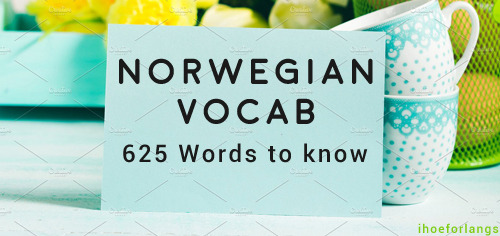
A list of the 625 most important words to know in your target language, translated into Norwegian Bokmål.
Animals:
en hund [m] | dog
en katt [m] | cat
en fisk [m] | fish
en fugl [m] | bird
en/ei ku [f] | cow (irregular pl. – kyr or kuer)
en gris [m] | pig
en mus [f] | mouse
en hest [m] | horse
en vinge [m] | wing
et dyr [n] | animal
Keep reading
715 notes
·
View notes
Text
List of Black Lives Matter and Racial Equality Petitions to sign:
one of the most comprehensive, well-rounded, and well researchd compilations of blm related resources (includes petitions, donation links, venmo accounts, names of people in need, etc) thats out there. please share this link everywhere and anywhere.
a black lives matter carrd that includes petitions, donation links, blm movement information, links on how to donate to BLM without spending money, black owned businesses, etc.
Justice for George Floyd
Justice for George Floyd 2
Justice for George Floyd 3
Charge the Officers Responsible for George Floyd’s Murder
Charge the Officers Responsible for George Floyd’s Murder 2
Justice For Ahmuad Arbery
Justice For Ahmuad Arbery 2
Justice for Breonna Taylor
Stand with Breonna
Charge Officers Responsible for Breonna Taylor’s Murder
Justice For Tamir Rice
Justice For Joāo Pedro
Justice for Alejandro Vargas Martinez
Justice for Belly Mujinga.
Justice for Rashad Cunningham
Justice For Tony McDade
Justice for Dion Johnson
Justice for Jennifer Jeffley
Justice for Young Uwa
Justice for Elijah Nichols
Justice for Tete Gulley
Justice for Tazne Van Wyk
Justice for Michael Dean
Justice For Amari Boone
Justice for Darrius Stewart
Justice for Shukri Abdi
Justice for Ashton Dickson
Justice For Darrius Stewart
Justice for David McAtee
Justice for Cameron Green
Justice for Crystal Mason
Justice For Zinedine
Justice for Regis Korchinski-Paquet
Justice for Christopher Josey
Justice for Amiya Braxton
Justice For Emerald Black
Justice for Andile Mchunu
Justice for Cameron Green
Justice for Tamla Horsford
Justice for Collins Khosa
Justice for Sean Monterrosa
Free Siyanda
Reopen Sandra Bland’s Case
Free Willie Simmons who has served 38 years for a $9 robbery
Get Washington State to Hold Police Officers Accountable for Police Brutality
Arrest Officer Jared Campbell for macing a child
Demand Jail Time for Dylan Mota and Jacob Robles
Demand Jail Time for All Police who Murder Innocent People
Fire Racist Criminal Michael J Reynolds from the NYPD
Petition for Nationwide Police De-Escalation Training
Petition for Nationwide Police Required Racial Bias Test
stop immigrants being poisoned by ICEBan the use of inhumane rubber bullets
Demand a retrial for Angel Bumpass wrongfully convicted 13 year old with a life sentence
End Police Brutality and Violence Against BIPOC in the USA
Ban the use of rubber bullets for crowd control
Join Campaign Zero
Drop All Charges Against Incarcerated Trafficking Survivor Chrystul Kizer!
Reopen Kendrick Johnson’s Case
Abolish Prison Labour in the USA
Require Dash and Body Cameras for the King County Sheriff’s Office
Donation Links
A thread of Youtuve videos you can stream to donate to BLM
Official George Floyd Memorial Fund
OFFICIAL Gianna Floyd Fund (George Floyd’s child)
Black Lives Matter
We Cant Breathe
43 Bail Funds to Support
Homeless Black Trans women fund
Split a donation between 70+ community bail funds, mutual aid funds, and racial justice organizers
Minnesota Healing Justice Network
Women for Political Change
Spiral Collective
When We All Vote
National List of Bail and Mutual Aid Funds/Organizers/Black Owned Businesses
Venmo names of black trans people that need help
Latino Community on Lake Street
Black Immigrant Collective
Centro de Trabajadores Unidos en Lucha
Atlanta Black Owned Business Relief
Al Maa'uun
Remembering Shana Isuroon
Fundraising for destroyed black owned businesses
Joyce Preschool
Black Table Arts
Northside business support
Du Nord Riot Recovery Fund
Unicorn Riot
Donate to Destiny Harrison & her daughter Dream’s Legacy
Pimento Relief Fund
Southside Harm Reduction
West Broadway Business and Area Coalition
Division of Indian Work
TC Care Collective
Justice for Breonna Taylor
Justice for Jamee
Justice for David McAtee
HOW TO DONATE INTERNATIONALLY/SITES THAT ACCEPT INTERNATIONAL CURRENCY
HOW DONATE WITH NO MONEY
HOW TO DONATE WITH NO MONEY BY STREAMING THIS
HOW TO DONATE TO BLM BY SHARING LINKS
A list of black owned businesses we should be supporting! + a list of black owned businesses we should be supporting that accept international currency!
* this list is constantly updated so please keep checking back for new information on petitions and ways to donate!!
113K notes
·
View notes
Photo
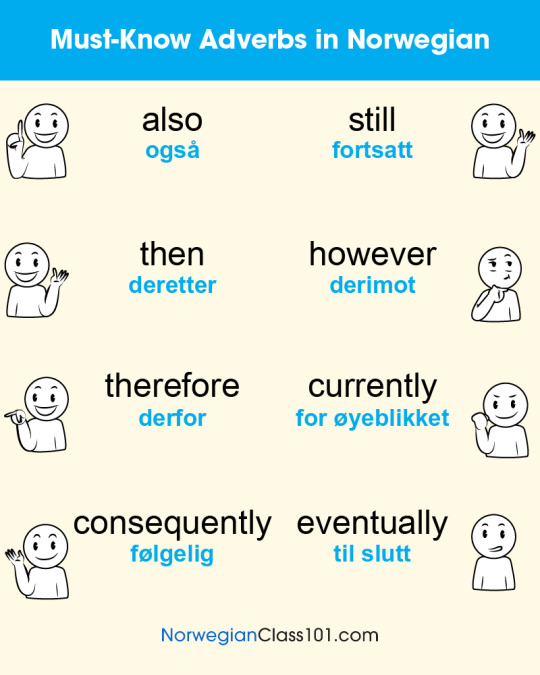
Most Common Verbs in Norwegian 💡 PS: Learn Norwegian with the best FREE online resources, just click here: https://www.norwegianclass101.com/?src=tumblr_special_infograph_verbs_8_022020
95 notes
·
View notes
Photo
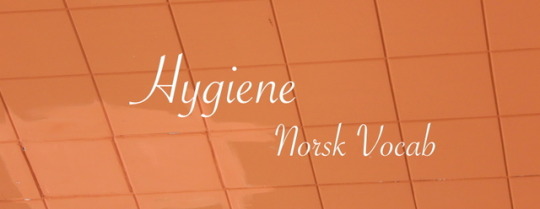
BABBEL* NOTES PT. 1/?
NORSK//ENGLISH
Hygiene (en) - hygiene
Frisk - healthy/fresh
En tannbørste - a toothbrush
En tannkrem - a toothpaste
En sjampo - a shampoo
Å dusje - to take a shower
En såpe - a soap
En krem - a cream
Et håndkle - a towel
Ren - clean
En pinsett - (a) tweezers
En barberhøvel - a razor
Å barbere seg - to shave
En kam - a comb
Et lommetørkle - a tissue/handkerchief
Å pusse nesen - to blow one’s nose
Et toalettpapir - a toilet paper
Dråper - drops
Å vaske ansiktet sitt - to wash one’s face
*Notes are from babble.com
*Verbs/Verb phrases are in italics and are in the infinitive form
*Please correct if there are any mistakes!
94 notes
·
View notes